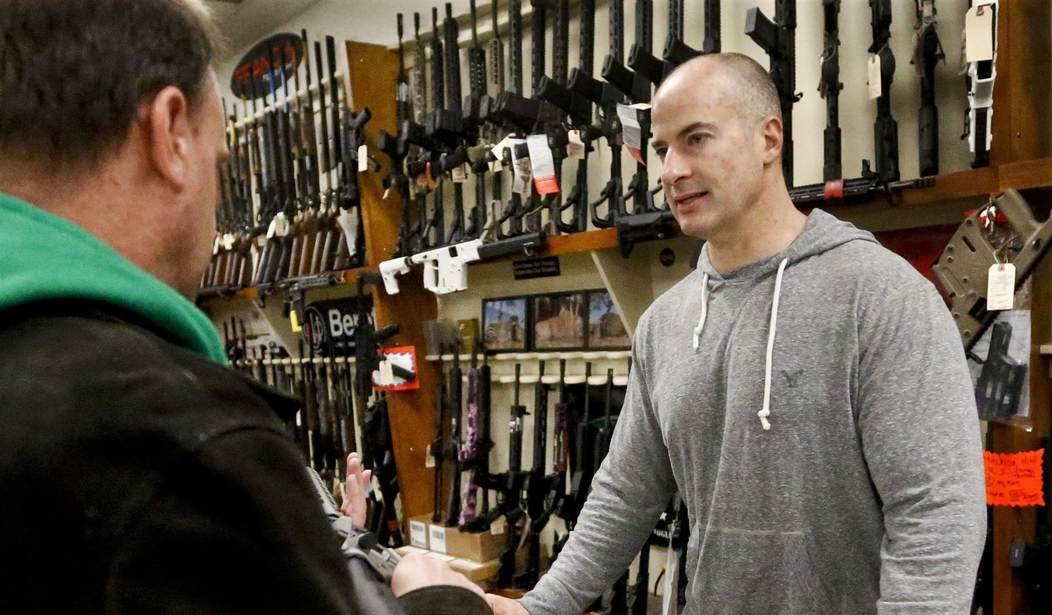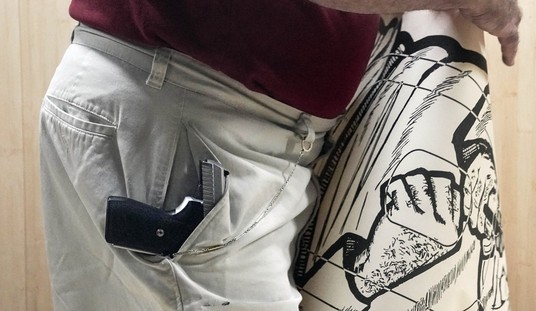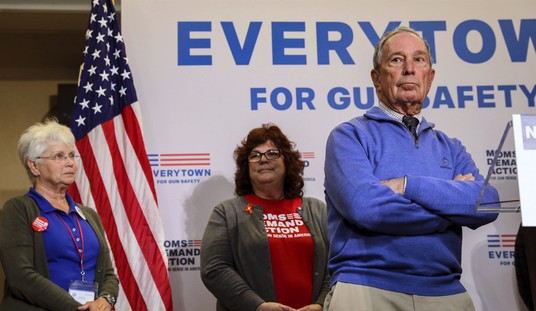Earlier this month Vermont Gov. Phil Scott allowed a gun control package to become law without his signature, saying at the time that though he had serious doubts about the constitutionality of the 72-hour waiting period on gun sales, he was willing to let the courts figure it out. That profile in political cowardice allowed Scott to avoid what was likely going to be a losing veto battle over the gun control bill, but at a cost to gun owners, who now not only have to live with the consequences of Scott’s inaction but have to raise the funds to sue the state over the new gun control measures.
The Vermont Federation of Sportmen’s Clubs is now stepping up to that challenge, announcing their plans to take on not only the waiting period portion of the new gun control package but the state’s ban on “high capacity” magazines that was signed into law in 2018.
For years and years and years, the VTFSC has watched and waited for the Supreme Court of the United States (SCOTUS) to act on clarifying the Second Amendment, the ONLY amendment that uses the phrase “shall not be infringed”. In 2008, SCOTUS ruled in D.C. v. Heller, the first major Second Amendment case to be examined since the 1939 case of U.S. v. Miller. The Heller decision struck down as unconstitutional a District of Columba law that required firearms to be either disassembled or locked up in one’s own home – a law which effectively prevented self-defense.
In 2020, SCOTUS ruled in McDonald v. Chicago, a case which struck down as unconstitutional a Chicago law that prevented citizens from defending themselves outside of their home.
In 2022, SCOTUS heard NYSRP v Bruen, a case which challenged a law that very effectively prevented honest and lawabiding citizens from being able to obtain a permit that would then allow them to carry a firearm for self-defense.
In crafting the Bruen Decision, SCOTUS recognized that since the Heller decision was made, lower courts had been steadily infringing on the core of the Second Amendment, doing so by using various means-to-ends tests and intermediate scrutiny to determine whether a given law was constitutional or not. In recognizing that fact, SCOTUS saw that Second Amendment cases were being treated differently than how other Rights were handled, and they set about to provide the instructions that all courts should follow when hearing a Second Amendment case.
Simply put, if an existing or proposed law impacts the core right of the Second Amendment, SCOTUS ruled that the law should be considered as being presumptively unconstitutional UNLESS the government could show that such a law was in line with the text, history, and tradition of firearm ownership at the time of the founding through the Ratification of the Constitution in 1878.
At the time of our founding, there was no law to prevent or delay an honest and law-abiding citizen from immediately purchasing a firearm for any lawful purpose; such laws just didn’t exist; and the State will not be able to show differently. Likewise, there were no laws that prevented or restricted firearms that could shoot more than one shot without re-loading (multi-shot firearms most assuredly did exist at the time of our founding), and our own 2nd Circuit has already ruled that high-capacity magazines are in “common use”. This is an extremely important point, since the “common use” test is central to the Heller, McDonald and Bruen decisions, making it very difficult to see how the 2nd Circuit can do anything but strike down the Mag Ban as well.
Since he decided that the courts should be the body to figure out the constitutionality of the 72-hour waiting period despite his own objections, is Gov. Scott gonna cut a hefty check to the VTFSC to help in their legal challenge? I highly doubt it, though it would definitely be the right thing to do.
This isn’t the first lawsuit taking on waiting periods, and unfortunately I doubt it will be the last either. Last month Gun Owners of America filed a federal lawsuit in Texas alleging that the gun control bill signed into law by Joe Biden last year is creating an unconstitutional delay for young adults purchasing a firearm thanks to the enhanced background checks for gun buyers under the age of 21.
There’s also another federal challenge underway to California’s 10-day waiting period that’s being brought by San Diego County Gun Owners PAC, California Gun Rights Foundation, Firearms Policy Coalition, and the Second Amendment Foundation. In their complaint, the groups note that the ten-day wait is completely unnecessary when it comes to processing background checks, and that the ostensible reason for the state-mandated delays is to impose a “cooling off” period before someone can take lawful possession of a legally-purchased firearm. As the plaintiffs point out, however, there simply is no historical analogue to this kind of restriction that can be found in either 1791 or 1868, when the Fourteenth Amendment was ratified. Waiting periods are a modern invention, not a longstanding tradition, and in a day and age of “instant” background checks they’re both completely unnecessary and a violation of our fundamental right to armed self-defense. Most of us don’t purchase a firearm because we’re in immediate danger, but that’s not the case for every gun owner. Why should a woman concerned about an abusive ex, for instance, be forced to twiddle her thumbs for three, five, or ten days before she can exercise her right to keep and bear arms in self-defense? Because the state says so?
That might actually have been reason enough for these restrictions to stand under the two step, tiered scrutiny test adopted by many lower courts after the Heller decision, but it won’t suffice under the text, history, and tradition test spelled out by SCOTUS in Bruen. A right delayed is a right denied, and I’m glad to see the Vermont Federation of Sportmen’s Clubs stepping up to the plate after Vermont’s governor stepped aside and allowed this infringement to be put in place over his impotent objections.









Join the conversation as a VIP Member